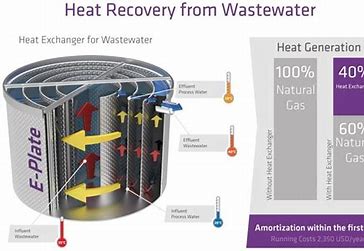
Introduction
The importance of energy-efficient wastewater treatment systems cannot be overstated in today’s world. As the global population continues to grow, so does the need for effective wastewater treatment solutions that minimize energy consumption and reduce environmental impact. This article aims to provide an in-depth exploration of energy-efficient wastewater treatment systems, highlighting their relevance and importance in the context of sustainability. Additionally, it will present a brief overview of the article’s structure and main points to guide readers through this comprehensive discussion.
Historical Background
To understand the significance of energy-efficient wastewater treatment systems, it is essential to examine their evolution over time. Wastewater treatment systems have undergone significant transformations, with energy efficiency becoming a focal point in recent decades. This section will delve into the historical background of wastewater treatment systems and shed light on the milestones that have contributed to the development of energy-efficient approaches.
Key Concepts and Definitions
To comprehend energy-efficient wastewater treatment systems fully, it is crucial to define and explain key terms and concepts associated with energy efficiency in this context. This section will provide clear definitions of energy-efficient wastewater treatment systems and delve into the understanding of essential concepts, including energy consumption, energy recovery, renewable energy integration, and greenhouse gas emissions reduction.
Main Discussion Points
Efficient design and engineering strategies play a fundamental role in achieving energy-efficient wastewater treatment systems. Optimal process design and layout, well-informed equipment selection and optimization, advanced control systems and automation, and effective energy loss minimization through heat recovery and insulation are all crucial factors to consider. This subsection will discuss these strategies in detail, emphasizing their impact on energy efficiency.
Energy recovery is a key aspect of energy-efficient wastewater treatment systems. This subsection will explore various energy recovery technologies, including anaerobic digestion for biogas production, combined heat and power systems, membrane bioreactors for energy-efficient treatment, and nutrient recovery technologies for energy generation. By examining these technologies, readers will gain insights into their role in enhancing energy efficiency in wastewater treatment.

The integration of sustainable energy sources and effective energy management are essential components of energy-efficient wastewater treatment systems. This subsection will discuss the utilization of renewable energy sources such as solar, wind, and hydro power in wastewater treatment plants. Additionally, the importance of smart grid integration, demand response strategies, energy management systems, and optimization tools will be highlighted, showcasing their role in maximizing energy efficiency.
Case Studies or Examples
To showcase the practical application of energy-efficient wastewater treatment systems, this section will present three case studies. These case studies will delve into specific examples, including an energy-efficient wastewater treatment plant in a particular location, successful implementation of energy recovery technologies in another location, and the integration of renewable energy sources in a wastewater treatment facility. These real-world examples will provide tangible evidence of the benefits and feasibility of energy-efficient wastewater treatment systems.
Current Trends or Developments
This section will explore recent research findings concerning energy-efficient wastewater treatment systems. It will highlight technological advancements in energy recovery and renewable energy integration, shedding light on the latest innovations in energy management and optimization for wastewater treatment plants. By analyzing current trends and developments, readers will gain insight into the future direction of energy-efficient wastewater treatment systems.
Challenges or Controversies
Energy-efficient wastewater treatment systems face various challenges and controversies that need to be addressed. This section will examine economic considerations and the cost-effectiveness of implementing energy-efficient systems. Additionally, it will discuss regulatory frameworks and policies that impact the adoption of energy-efficient wastewater treatment solutions. The potential trade-offs between energy efficiency and treatment performance will also be explored, providing a balanced perspective on the challenges and controversies surrounding these systems.
Future Outlook
The future of energy-efficient wastewater treatment systems holds great promise. This section will discuss the potential for further advancements in energy-efficient systems and highlight the integration of artificial intelligence and Internet of Things (IoT) technologies for improved energy management. Furthermore, it will explore the potential impact of climate change and sustainability goals on the future of wastewater treatment, emphasizing the need for continuous innovation and adaptation.

Conclusion
In conclusion, energy-efficient wastewater treatment systems are crucial for achieving sustainability and minimizing environmental impact. This article has provided a comprehensive exploration of these systems, discussing their relevance, historical background, key concepts, main discussion points, case studies or examples, current trends or developments, challenges or controversies, and future outlook. By reinforcing the importance and benefits of energy-efficient wastewater treatment systems, this article aims to inspire further research and action in this field.
References
For readers interested in delving deeper into the topic of energy-efficient wastewater treatment systems, this section provides a list of sources and recommended readings. These resources serve as valuable references for further research and exploration of the subject matter.




